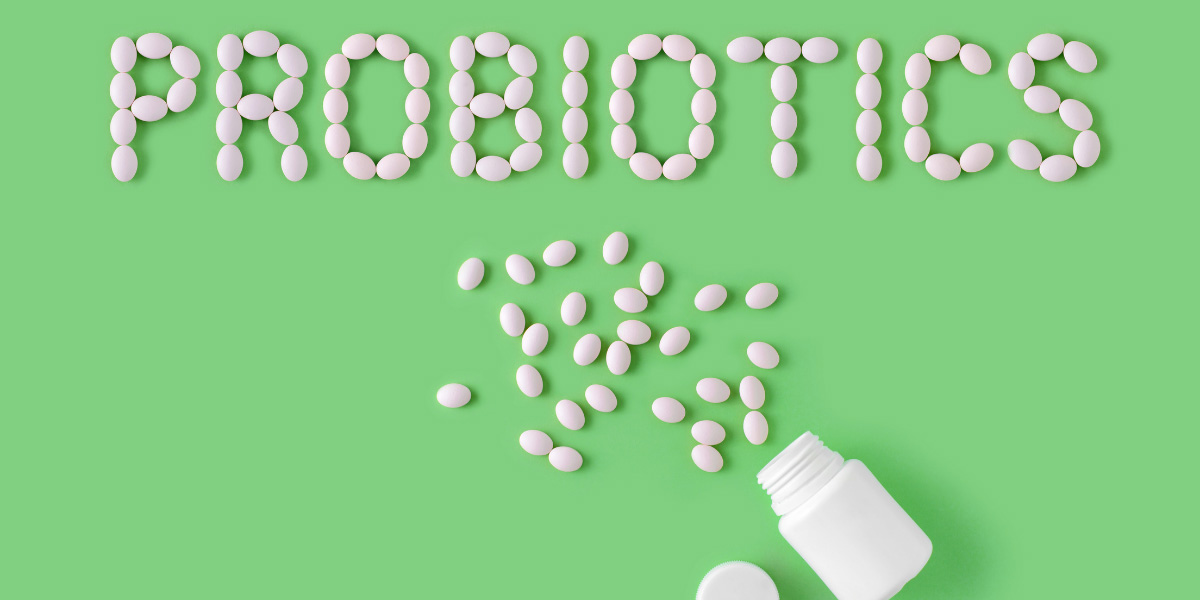Does My Pet Need Probiotics
Doctor of Veterinary Medicine

While efforts are made to answer all questions as quickly as possible, if an immediate answer is required or if your pet is in need of urgent or emergency care, contact your pet's veterinarian immediately.
Doctor of Veterinary Medicine

You will receive an answer from Dr. Lindsay and our vet/tech team as soon as possible, usually the same day.
All answers are provided for informational or educational purposes only, and are intended to be a supplement to, and not a substitute for, the expertise and professional judgment of your pet's veterinarian.
It may be necessary to consult your pet's veterinarian regarding the applicability of any opinions or recommendations with respect to your pet's symptoms or medical condition.
CloseDoctor of Veterinary Medicine

An error has occurred, please reload the page and try again.
CloseWhile efforts are made to answer all questions as quickly as possible, if an immediate answer is required or if your pet is in need of urgent or emergency care, contact your pet's veterinarian immediately.
There is no answer related to your question

Have you been thinking about trying out a probiotic supplement for your pet? Wondering how they work, or why they’re such a hot topic? Let’s take a look at how probiotics help cats and dogs and how they might be a good choice to add to your pet’s routine.
First, what are probiotics? Living things like cats and dogs, as well as humans, have microorganisms in their gut, especially in the large intestine. The gut microbiome is made up of trillions of microorganisms, some of which can be harmful if left unchecked. A healthy gut microbiome is balanced with beneficial bacteria and yeasts that control harmful bacteria and aid digestion.
Benefits of Probiotics For Pets Probiotics have been shown in both human and animal studies to help control digestive issues like constipation and diarrhea, whether from chronic digestive issues or from acute issues, like stress-related diarrhea from boarding, or an upset stomach after your pet has eaten garbage.
Your pet’s gut microbiome affects so much more than their digestion. It also produces the majority of the serotonin in the body. Serotonin impacts every part of your pet’s body, from their emotional well-being, to motor skills, to digestion. Probiotics may also boost your pet’s immune system and reduce symptoms of allergies.
Probiotics should not be used in place of prescription medications, but may benefit your pet when used alongside their prescriptions. Talk to your veterinarian before starting a probiotic supplement if your pet has a chronic illness, is immunocompromised, or if they’re on a long-term prescription.
Do all pets need probiotics? If your cat or dog is healthy, is rarely exposed to stressful environments or situations, has no behavioral issues, and has perfect bowel movements every day, you may not feel the need to use a probiotic supplement. The fiber in your pet’s diet naturally feeds the naturally occuring beneficial bacteria in their gut. You may give your pet foods like yogurt, kefir, or fresh green tripe, all of which contain beneficial bacteria. Some pet foods are fortified with probiotics.
Even so, there are virtually no downsides to giving your healthy pet a probiotic supplement. It can help boost their immune system so they can continue to stay healthy.
How To Maximize Benefits of Probiotics The best time to give your pet a probiotic supplement is either in the morning before breakfast or just before you and your pet go to bed. Probiotics travel to the gut more quickly and efficiently when taken on an empty stomach.
Probiotics typically do not interact with prescription medications, though they should be taken at least 2 hours before or after antibiotics. Antibiotics are used to eliminate harmful bacteria, but they also kill beneficial bacteria.
Which Probiotic Supplement Should I Use For My Pet? It’s best to use a species-specific probiotic supplement as they typically contain different doses and strains of microflora than supplements made for humans.
 Swipe
Swipe



















